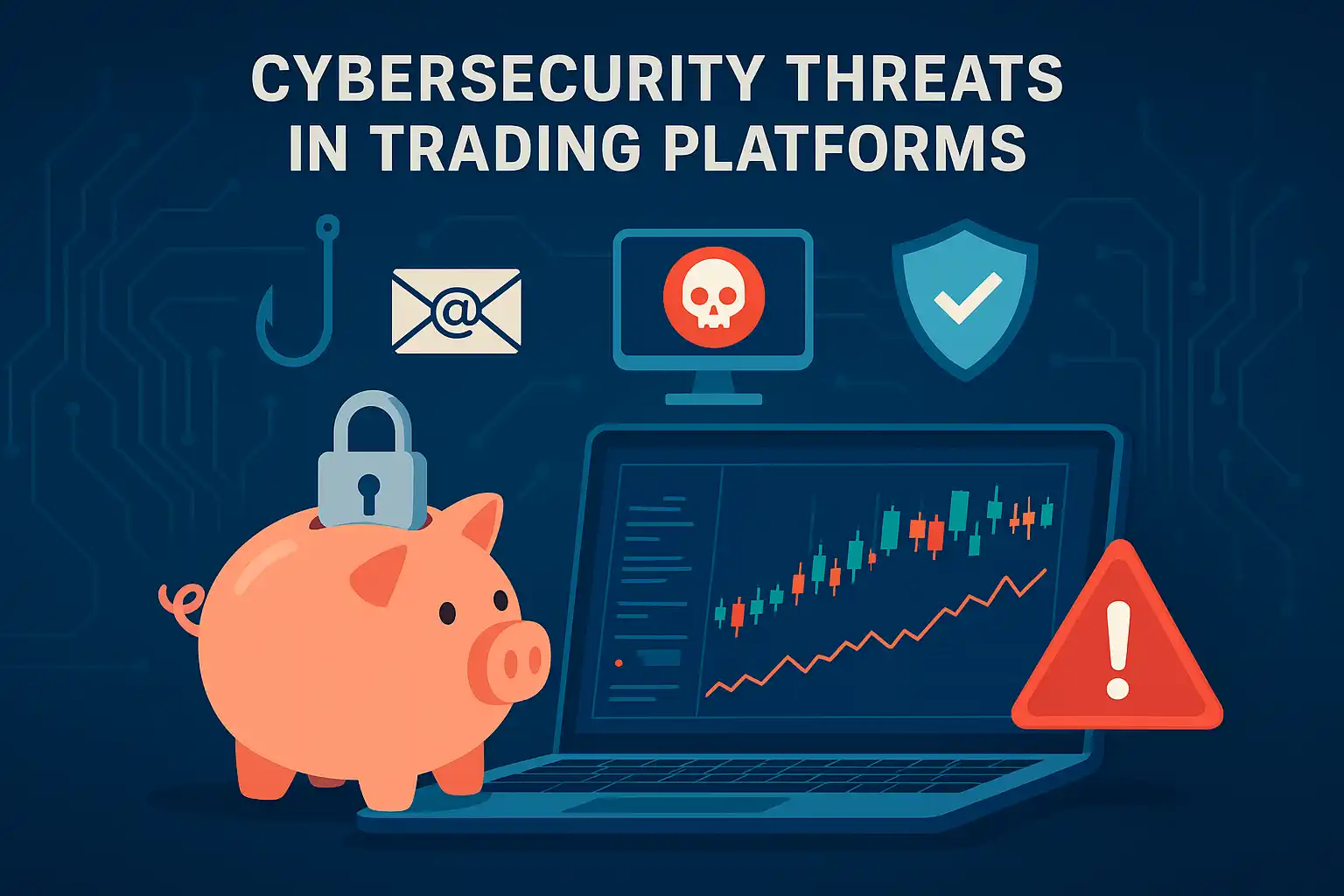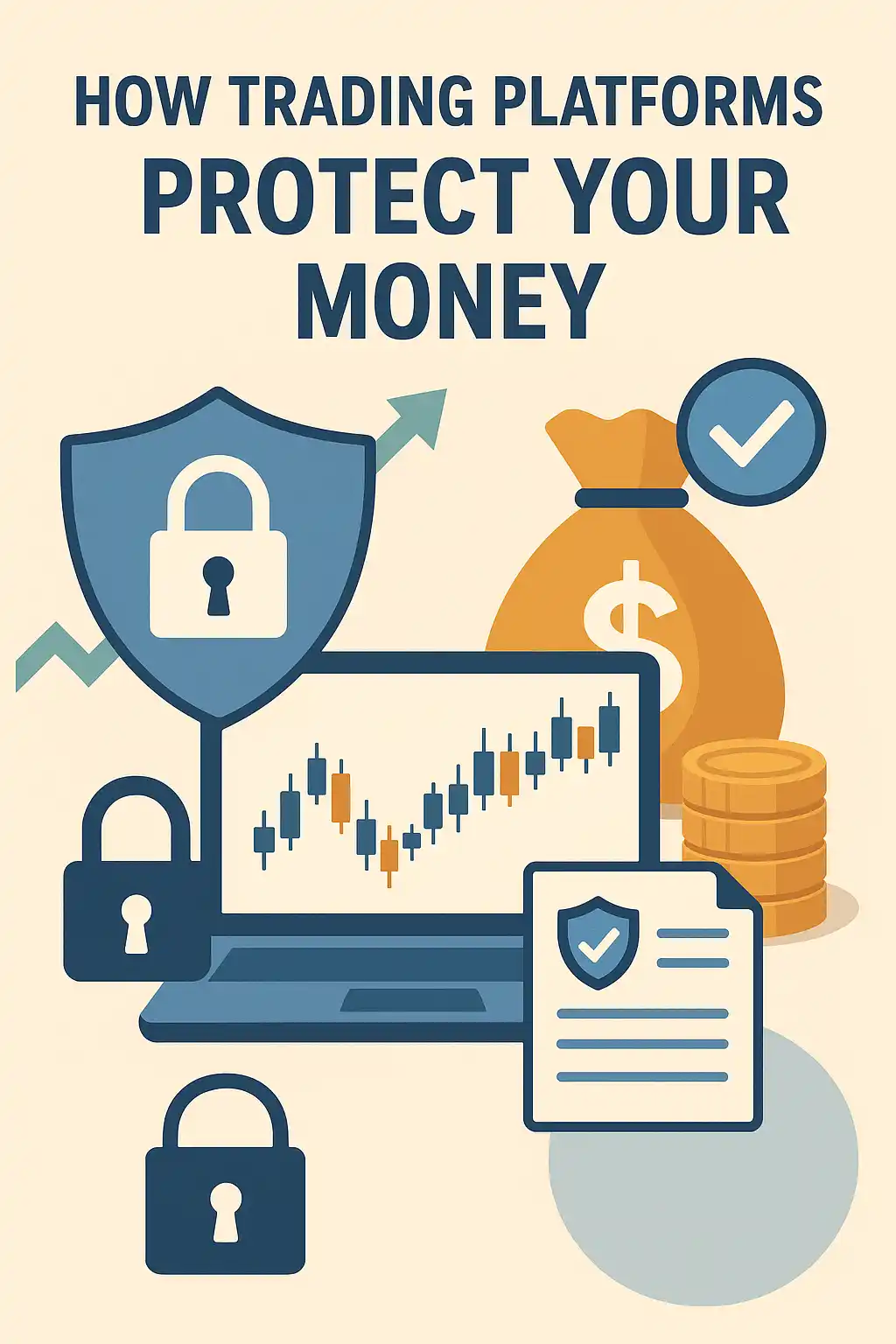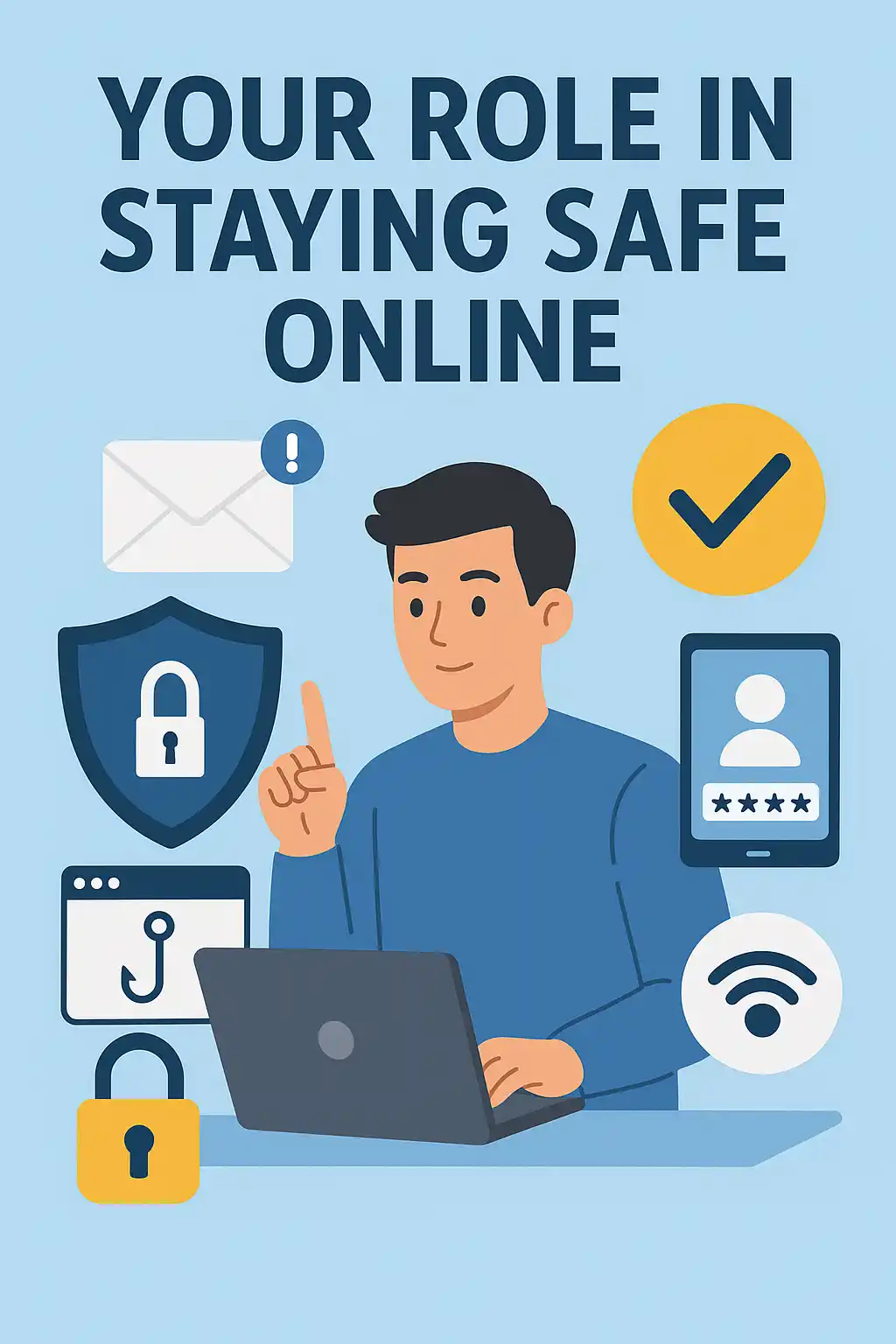Crash-Proof EA Templates You Can Use in 2026
Automated trading carries risks, but crash-proof EA templates protect capital and limit losses. These templates...

Imagine you have a special piggy bank where you keep all your allowance. You want to make sure it’s super safe, right? You might put a strong lock on it, hide it in a secret spot, and always keep an eye on it. Trading platforms, where people buy and sell things like stocks or currencies, are a bit like that piggy bank, but much, much bigger and online. They hold a lot of important money and information, so keeping them safe from bad guys is a really big job.
In today’s world, where almost everything is connected to the internet, these trading platforms face many dangers. These dangers are called cybersecurity threats. They are like invisible bad guys who try to break into the piggy bank to steal money or information. This article will help you understand what these threats are, how they work, and most importantly, how you can help keep your own trading safe. We’ll talk about tricky tricks and smart ways to protect yourself, making sure your online piggy bank stays locked up tight.
Cybersecurity is like having a very strong guard for your computer and all the information on it. In the world of trading, this means protecting your trading account, your money, and your personal details from people who want to steal them. It’s about making sure that only you can get into your account and that your trades are safe.
Think of it as building a digital fortress around your trading activities. This fortress needs strong walls, smart alarms, and watchful guards to keep out digital invaders. As more people trade online, these defenses become even more important. A small crack in the fortress can lead to big problems, like losing your money or having your identity stolen.
A trading platform is a special computer program or website that lets you buy and sell things like stocks, currencies (forex), or even gold. It’s your main tool for trading, showing you prices, charts, and letting you place orders. It connects you to the big financial markets around the world, right from your computer or phone. If you’re new to trading, our Forex Courses can help you understand how these platforms work.
These platforms are designed to be fast and easy to use, but because they handle real money and important decisions, they are also big targets for bad guys. They need to be super secure to protect all the users. Every click and every trade you make goes through this platform, so its safety is very important for your trading journey. This includes platforms like Ninja Traders and others.
Cybersecurity is super important for traders because if your trading platform or account isn’t safe, you could lose everything. Imagine someone getting into your account and making trades without your permission, or even stealing your money. This can happen if the platform isn’t protected well. For example, if you use Manual Systems for your trading, their security is directly tied to the platform’s overall safety.
Also, your personal information, like your bank details and address, is stored on these platforms. If bad guys get hold of this information, they can use it to pretend to be you and cause a lot of trouble. Good cybersecurity means you can trade with peace of mind, knowing your money and information are safe.
Just like there are different kinds of bad guys in movies, there are different kinds of cybersecurity threats that try to attack trading platforms. Knowing what these threats are is the first step to protecting yourself. These threats are always changing, as clever hackers find new ways to try and break through defenses.
It’s like a constant game of hide-and-seek, where the good guys (cybersecurity experts) are always trying to find and fix weaknesses before the bad guys (hackers) can use them. Being aware of these common tricks helps you understand the dangers and why it’s so important to be careful online.
Phishing is a trick where bad guys pretend to be someone you trust, like your trading platform or your bank. They send you fake emails or messages that look very real. These messages often ask you to click on a link or give them your username and password, saying there’s a problem with your account or a special offer.
If you click the link, it takes you to a fake website that looks just like the real one. If you type in your login details there, the bad guys steal them. Always be very careful with emails that ask for your personal information, especially if they make you feel rushed or scared. Always check the sender’s email address and the website link very carefully.
Malware is a sneaky type of computer program that can get onto your computer without you knowing. It’s like a tiny, invisible spy. Viruses are a type of malware that can make your computer sick, slowing it down or even deleting your files. Other types of malware can steal your information or let hackers control your computer.
These bad programs can get onto your computer through infected websites, fake downloads, or even attachments in emails. Once they are on your computer, they can watch what you type, steal your passwords, or even mess with your trading platform. This can even affect automated trading systems like Expert Advisors. Always use good antivirus software and be careful about what you download or click on. If you’re a developer, understanding Source Code can help you identify potentially malicious software.
Imagine a very popular store, and suddenly, thousands of people try to get in all at once, blocking the doors and making it impossible for real customers to enter. That’s what a DDoS attack is like for a trading platform. Hackers send a huge amount of fake internet traffic to the platform, making it crash or slow down so much that real traders can’t use it.
These attacks don’t usually steal information, but they can stop you from making trades when you need to, which can cause you to lose money. Trading platforms work hard to protect against these attacks, but they are a constant threat. It’s important for platforms to have strong defenses to keep their services running smoothly for everyone.
Sometimes, the danger doesn’t come from outside, but from inside the company. An insider threat is when someone who works for the trading platform, or used to work there, uses their access to do something bad. This could be stealing customer information, messing with the trading system, or helping outside hackers.
These threats are very hard to spot because the person already has permission to be inside the system. Companies try to prevent this by having strict rules about who can access what information and by watching for unusual activity. Trust is important, but companies also need strong security measures for their own employees.
This is one of the simplest but most common ways hackers get into accounts. If you use a very easy password, like ‘123456’ or ‘password’, or if you use the same password for many different websites, it’s like leaving your piggy bank unlocked. Hackers can easily guess or find these weak passwords. This is especially risky if you use platforms like Meta Trade 5 where your trading activity is directly tied to your login.
Once they have your password, they can take over your account, change your settings, steal your money, or make trades in your name. This is called an account takeover. Always use strong, unique passwords for your trading accounts and change them often. Think of your password as the super-strong lock on your digital piggy bank.

Trading platforms know how important it is to keep your money and information safe. They spend a lot of time and effort building strong defenses against all the cybersecurity threats we talked about. Think of them as the big, strong castles that protect your digital treasures.
They use many different tools and strategies to make sure their systems are secure. These protections are always being updated because hackers are always trying new tricks. It’s a continuous battle, and platforms are always working to stay one step ahead to keep your trading experience safe and sound.
Encryption is like speaking in a secret code that only you and the trading platform understand. When you send information, like your password or bank details, it gets scrambled into a code. If a bad guy tries to listen in, all they hear is gibberish, and they can’t understand your secret message.
This secret code protects your information as it travels across the internet. It makes sure that even if someone intercepts your data, they can’t read it. Trading platforms use very strong encryption to keep your communications private and safe from prying eyes, making sure your personal details remain secure.
Multi-Factor Authentication, or MFA, is like having more than one lock on your piggy bank. Instead of just a password, you might also need a special code sent to your phone, or a fingerprint scan, to log in. This makes it much harder for bad guys to get into your account, even if they somehow steal your password.
Even if a hacker knows your password, they won’t have the second piece of information, like your phone. This extra step is a very powerful way to protect your account from unauthorized access. Always turn on MFA if your trading platform offers it, as it’s one of the best ways to keep your account safe.
Trading platforms regularly check their systems for weaknesses, just like a doctor checks a patient for health problems. These are called security audits. They look for any small cracks or holes that hackers might try to use to get in. If they find any, they fix them right away.
They also constantly update their software and systems. These updates are like giving the castle new, stronger walls or better guards. These regular checks and updates are super important because new threats appear all the time. Platforms work hard behind the scenes to keep their defenses strong and up-to-date.
Firewalls are like digital walls that stand between the internet and the trading platform’s computers. They decide what kind of information can come in and go out, blocking anything suspicious. Intrusion Detection Systems (IDS) are like alarm systems that watch for anyone trying to break in or do something they shouldn’t.
If the IDS sees something unusual, it immediately alerts the security team, who can then stop the attack. These systems work together to create a strong barrier against outside threats. They are constantly monitoring traffic and activity to ensure that only safe and authorized connections are allowed.
Even with the best defenses, sometimes bad things can happen. That’s why trading platforms also have plans for data backup and recovery. This means they make copies of all important information and store them in a safe place. If something goes wrong, like a system crash or a cyberattack, they can quickly get all the information back.
This is like having a spare key for your piggy bank, or a copy of all your important papers. It ensures that even if the main system is affected, your trading history, account balance, and personal data are not lost forever. This provides a safety net, protecting your assets even in unexpected situations. For those interested in testing their strategies, our MT5 Backtesting Guide for Beginners can provide valuable insights.

Even though trading platforms do a lot to protect you, you also have a very important part to play in keeping yourself safe. Think of it like being a team: the platform provides the strong castle, but you need to make sure you’re not leaving the drawbridge down or letting strangers in. Your actions make a big difference.
Being smart and careful online is your best defense. By following a few simple rules, you can greatly reduce the chances of falling victim to cybersecurity threats. Remember, protecting your money and information is a shared responsibility, and your vigilance is a key part of that defense.
This is super important! Your password is the first lock on your account. Don’t use easy-to-guess passwords like your birthday or
your name. Use a mix of big letters, small letters, numbers, and special symbols. And never use the same password for more than one account.
Think of each password as a unique key for a unique lock. If a bad guy gets one key, they won’t be able to open all your other locks. Using a password manager can help you create and remember many strong, different passwords. This simple step is one of the most powerful ways you can protect your online accounts.
If your trading platform offers MFA, turn it on! It’s like adding a second, super-strong lock to your account. Even if someone somehow gets your password, they still won’t be able to log in without that second piece of information, like a code from your phone or a fingerprint scan.
This extra layer of security makes it much, much harder for hackers to get into your account. It’s a small effort for a huge boost in safety. Don’t skip this step; it’s one of the best ways to protect your trading account from unauthorized access and keep your money safe.
Always be on high alert for phishing attempts. If you get an email or message that looks like it’s from your trading platform or bank, but it asks for your login details or tells you to click a suspicious link, be very careful. Scammers are very good at making these messages look real.
Before clicking any links, hover your mouse over them to see where they actually go. If it looks strange, don’t click it! If you’re worried about your account, go directly to your trading platform’s official website by typing the address yourself into your browser, instead of clicking a link in an email. It’s always safer to be suspicious than sorry.
Think of software updates as getting new, stronger armor for your computer. Companies regularly release updates for your operating system (like Windows or macOS), web browser, and trading platform software. These updates often include important security fixes that close holes hackers might try to use.
If you don’t update your software, you’re leaving those holes open, making it easier for bad guys to get in. Always install updates as soon as they are available. It’s a simple habit that can make a huge difference in your online safety, protecting your computer and your trading activities from known threats.
Good antivirus software is like having a guard dog for your computer. It constantly watches for and removes malware, viruses, and other harmful programs. A firewall, on the other hand, is like a security gate that controls what information goes in and out of your computer, blocking suspicious connections.
Make sure you have good, up-to-date antivirus and firewall software installed on your computer. These tools work together to protect your computer from many common online threats. They are essential for anyone who uses their computer for important tasks like online trading, adding a critical layer of defense.
Public Wi-Fi, like the kind you find in coffee shops or airports, is often not very secure. It’s like having a conversation in a crowded room where anyone can listen in. If you log into your trading platform or do anything sensitive on public Wi-Fi, your information could be easily stolen by hackers.
Try to avoid accessing your trading accounts or other sensitive information when using public Wi-Fi. If you must, use a Virtual Private Network (VPN). A VPN is like a secret tunnel that encrypts your internet connection, making it much harder for anyone to snoop on your data. It’s a smart way to protect your privacy and security when you’re out and about. For more tips on general cybersecurity best practices, you can refer to resources from organizations like the National Institute of Standards and Technology (NIST).](https://www.nist.gov/cybersecurity).
Even with all the best protections, it’s always a good idea to keep a close eye on your trading accounts and bank statements. Check them regularly for any unusual activity or transactions you don’t recognize. If you see anything suspicious, contact your trading platform or bank immediately. For those looking for affordable tools to help with monitoring, consider exploring our offerings in the $5 Forex category.
Think of it like checking your piggy bank every now and then to make sure all your allowance is still there. Catching suspicious activity early can help prevent bigger problems and allow you to act quickly to protect your funds. Regular monitoring is your final line of defense against potential threats. You can also explore our Free Products section for tools that can help you monitor your trading activity, or consider tools in the $9 Forex category for additional security-a-fee solutions.
In the fast-paced world of online trading, cybersecurity is not just a technical term; it’s your personal shield. Understanding the threats, from sneaky phishing attempts to powerful DDoS attacks, is the first step. But knowing is only half the battle. Your active participation in protecting your digital assets is just as crucial as the advanced security measures taken by trading platforms.
By using strong, unique passwords, enabling multi-factor authentication, staying vigilant against phishing, keeping your software updated, and being smart about public Wi-Fi, you become an active guardian of your trading journey. Remember, the goal is to trade with confidence, knowing that you’ve built a strong digital fortress around your investments. Stay informed, stay secure, and happy trading!
Jack Henry
02/09/2025
Automated trading carries risks, but crash-proof EA templates protect capital and limit losses. These templates...
Understanding major and minor currency pairs is the first step in forex trading. Understanding major...